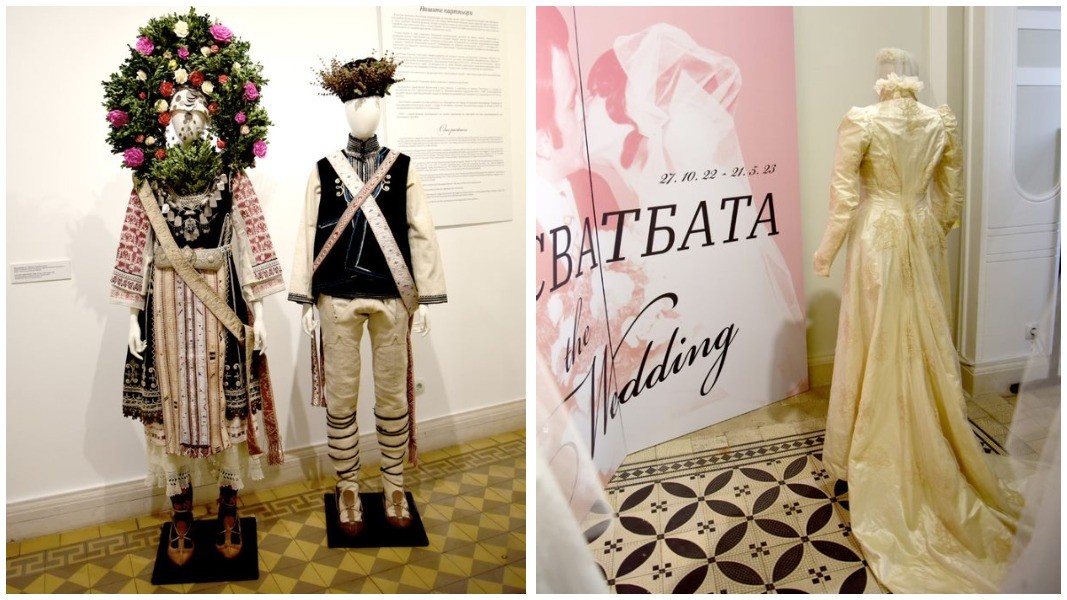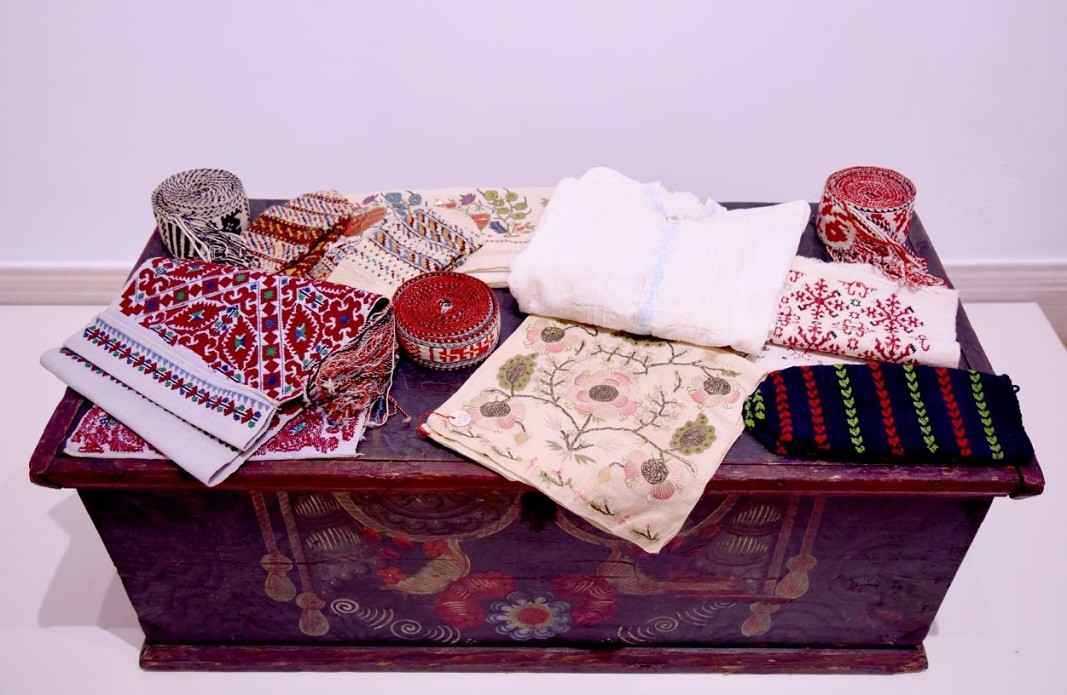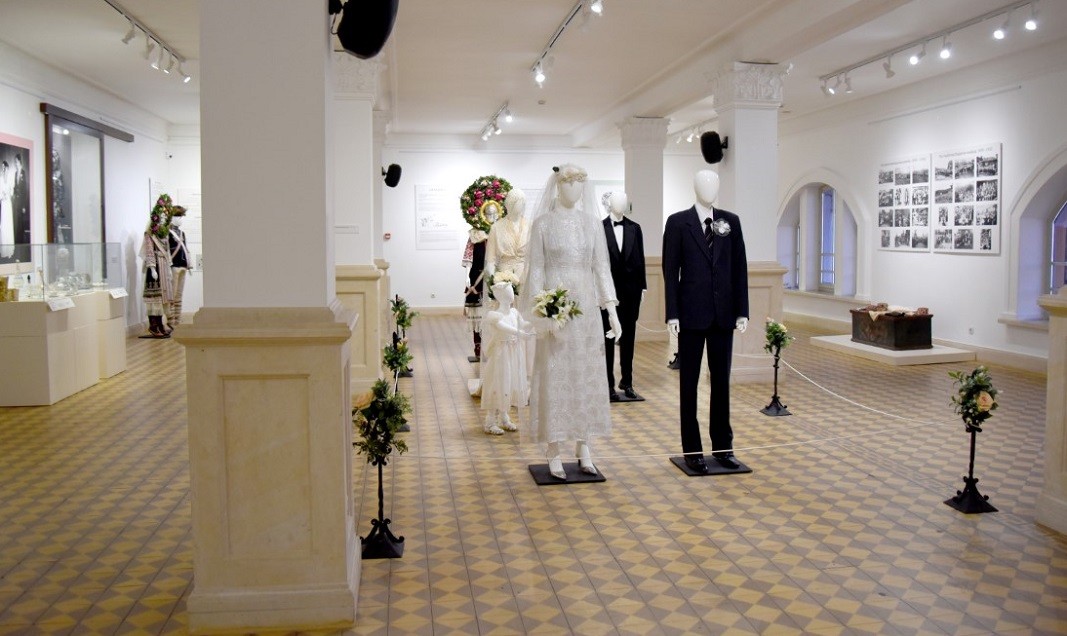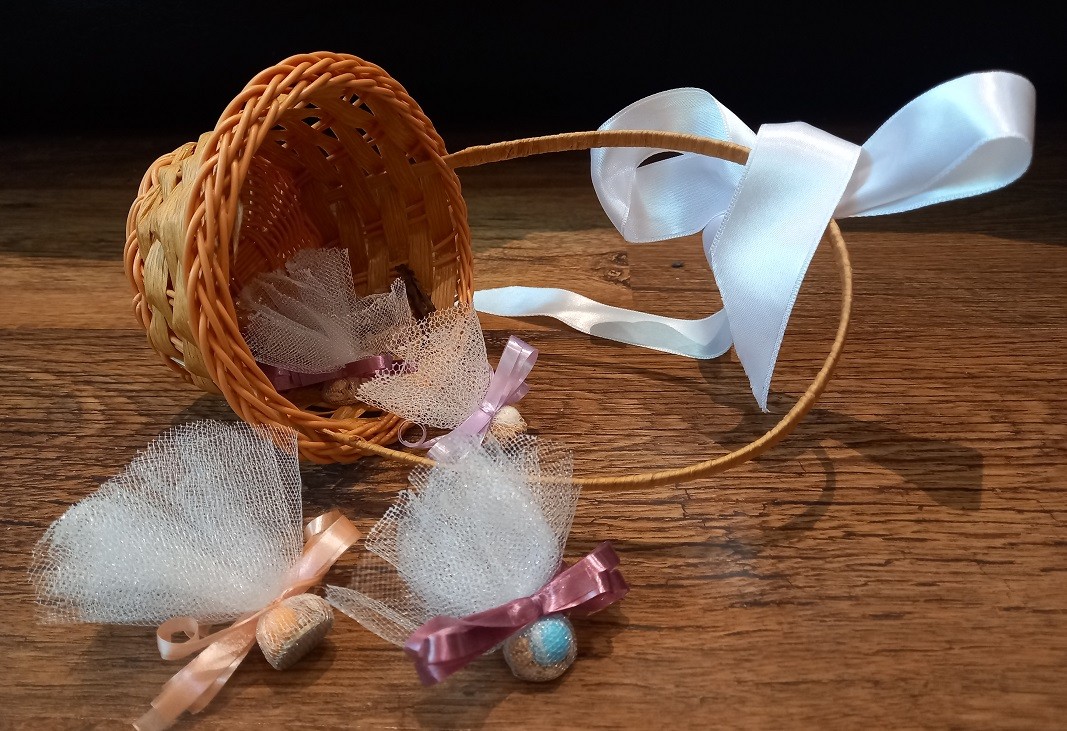What changes occurred in Bulgarian wedding traditions after the Liberation in 1878? How does the city, as a centre of attraction for a new type of life, changed weddings, as well? What did socialism bring to the tradition of weddings in the period 1944-1989? Answers to these and many other questions are provided by the lavish temporary exhibition "The Wedding" now on display at the Regional History Museum in Sofia.
"In the exhibition one can see the traditional wedding costume, which is unfamiliar to the young audience, as we have also made a reconstruction of the wreath worn by the bride at the traditional Bulgarian wedding”, says Mariyana Marinova, curator from the museum”. “In the urban environment, wedding costumes retain relative stability. The white frock, the veil and the bouquet are mandatory. But their appearance changes over time, for example at the end of the 19th and the beginning of the 20th century, brides have very long train of the dresses carried by the bridesmaids. Gradually, newlyweds start to prefer more practical dresses. In the period around and after the wars, when material conditions were significantly more difficult, people also got married in their everyday clothes, and under socialism, a way was sought to escape from the cliché, the traditional white wedding dress."

The oldest wedding dress presented in the exhibition is from 1888. It was made in Lyon, France, bought from Istanbul and belonged to the wife of the Prime Minister Dr. Konstantin Stoilov, one of the authors of the first laws of Bulgaria after the Liberation.
The changes in the costume, marriage documents, photos, as well as the gifts typical for the rural and urban wedding are shown.

"Rural ones are socks, towels, shirts, while in urban weddings, special bags are given for storing underwear, towels, etc., which are beautifully made and stand in the wardrobe or on the wall”, says Mariana Marinova. “Practical things are given that will serve in the future life of the young family - dining sets, pots. In the exhibition, you can also see the silver tea set that Poliksena Stambolova's father gave to his daughter on the occasion of her engagement to the future Prime Minister Stefan Stambolov."
There are also peculiarities in the celebration during the different periods. In the case of a traditional wedding, this is an event in which the whole village participated, because it was also a legitimization of the new couple in front of society. At the urban wedding, only certain guests received an invitation to the big event. Then the fun continued at home or in a restaurant.

"This system was also preserved in the period of socialism, as it is characteristic of the city wedding after the Liberation that everyone is dressed in European clothes that follow the European fashion trends”, Mariana Marinova continues.
In a traditional wedding, the best men are usually relatives, while in a city wedding, a person with a position in society is invited to be the best man, who can support the young family and, in particular, the groom's career in his future professional path. The custom that exists at both traditional and urban weddings - to have music, and even some of the couples thought that if the bagpipes are not played and the drum is not beaten, they will not have luck in married life."
A curious tradition for the socialist society is the so-called "Komsomol wedding", which is characterized by the fact that the newlyweds do not give gifts to the guests, but after the marriage, the young couple presents flowers and takes a picture in front of one of the monuments - of the Soviet Army, Tsar Liberator or another, depending on the place of residence. The gift for the new family is money in an envelope to avoid the showiness of decorating the newlyweds with strings of banknotes and accusations of excessive pursuit of material things.
The old Bulgarian tradition of throwing wheat over the heads of the newlyweds as a symbol of fertility is changing in a very interesting way.
"Candies and small money are added to the wheat, and all this during socialism is collected in a small beautifully designed package, which is taken by the guests as a souvenir and with a wish for fertility, prosperity and a sweet life for the newlyweds."

Despite the changes in the overall ritual, its meaning remains unchanged: the gathering of two people, the building of a new family and the upbringing of future children.
English version Rositsa Petkova
Photos: Desislava Semkovska, Sofia Regional History Museum
The Philip Koutev National School of Folk Arts is not just any school - it is a talent laboratory. It is the first school not only in Bulgaria but in the Balkans for professional study of folklore. It is located in the heart of the beautiful town of..
Scientists from the Sorbonne will study the cultural heritage preserved in the Regional Ethnographic Open-Air Museum "Etar" , informs public broadcaster BNT. In March this year the French scientists together with experts of REOM "Etar" will study elements..
The day of St. Tryphon (1 February old style, 14 February new style) is celebrated by vine growers, falconers and gardeners in Bulgaria. Trifon Zarezan comes around with vine pruning and wine drinking St. Tryphon is believed to help..

+359 2 9336 661
